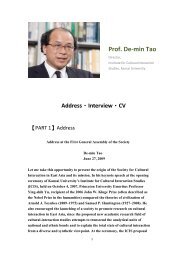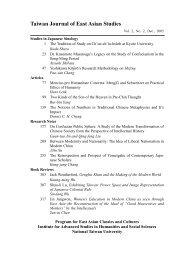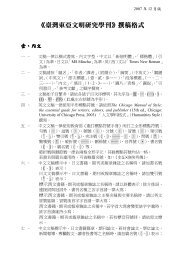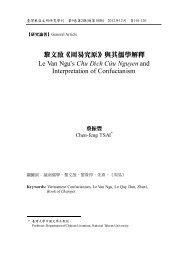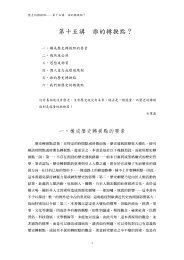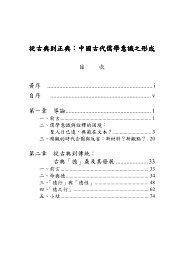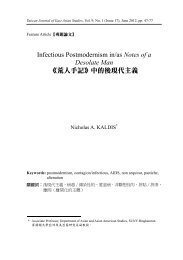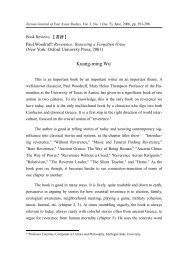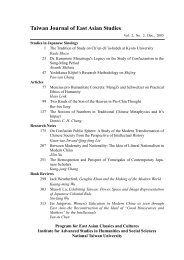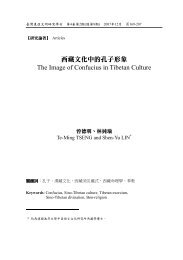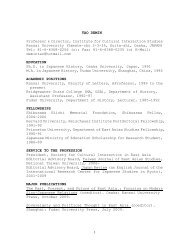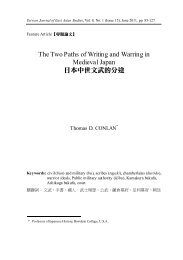臺灣東亞文明研究學刊 - 東亞經典與文化研究計畫 - 國立臺灣大學
臺灣東亞文明研究學刊 - 東亞經典與文化研究計畫 - 國立臺灣大學
臺灣東亞文明研究學刊 - 東亞經典與文化研究計畫 - 國立臺灣大學
Create successful ePaper yourself
Turn your PDF publications into a flip-book with our unique Google optimized e-Paper software.
Nicholas T. PHILLIPSON Theorising the Problems of Small Nations in the Enlightenment 227<br />
the support of the landed classes, the merchants and the burghs. It was effectively<br />
brought to a conclusion by a remarkable if delayed economic boom and a process of<br />
cultural integration that began in earnest in the middle decades of the century and<br />
continued to the end of our period. By then, it was generally believed that the union<br />
between the two countries was "complete" . The remarkable cultural paradox that<br />
lies at the heart of this process of assimilation—and it is, perhaps the central<br />
cultural paradox of the British state in this period of commercial and imperial<br />
expansion—is that during the middle and later decades of the century Scotland<br />
acquired one of the most sophisticated, influential and politically alert<br />
intelligentsias to be found in Europe in the period of the later enlightenment.<br />
In this paper I want to consider Scottish attitudes to Europe at two key<br />
moments in this period. The first precedes the Act of Union of 1707 and covers a<br />
period in which the Scottish political classes were faced with the prospect of a<br />
parliamentary union with England that seemed to threaten the political survival of a<br />
small, restless and economically troubled nation. The second follows the Jacobite<br />
Rebellion of 1745, coincides with the first signs of serious economic growth and<br />
further coincides with the period of enlightenment when politically alert Scots<br />
began to ask whether political stability, economic growth and cultural reputation<br />
were an adequate compensation for the loss of political independence. In particular,<br />
I want to discuss the thought of two key thinkers who were deeply preoccupied with<br />
the present state of Scottish politics. The first of these figures is Andrew Fletcher of<br />
Saltoun, whose political analysis was of immense importance in shaping the debate<br />
about the Act of Union. The second was David Hume, the great philosopher,<br />
historian and religious sceptic whose thinking was of foundational importance in<br />
shaping the intellectual culture of the Scottish enlightenment and the attitudes of<br />
enlightened Scots to the public culture of the new British state. Both were to<br />
attempt to clarify urgent Scottish political problems by setting them in wider and<br />
distinctively European contexts.<br />
iii



